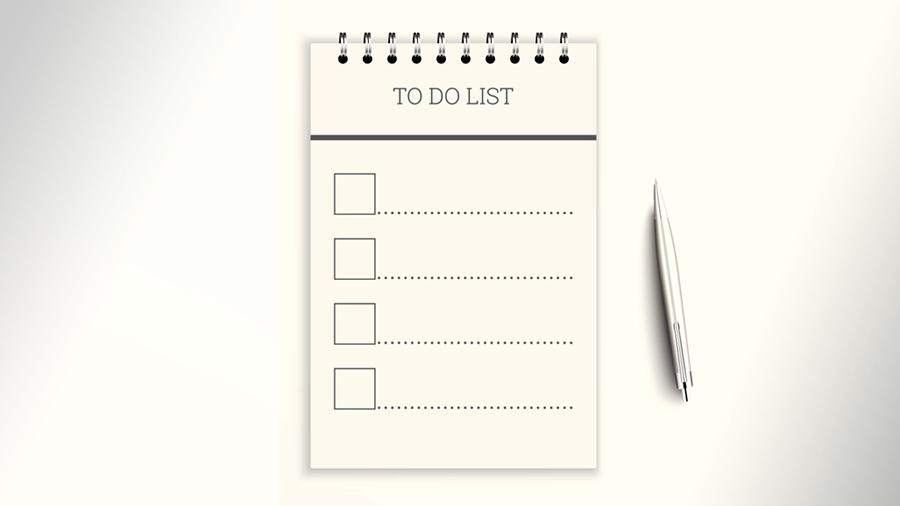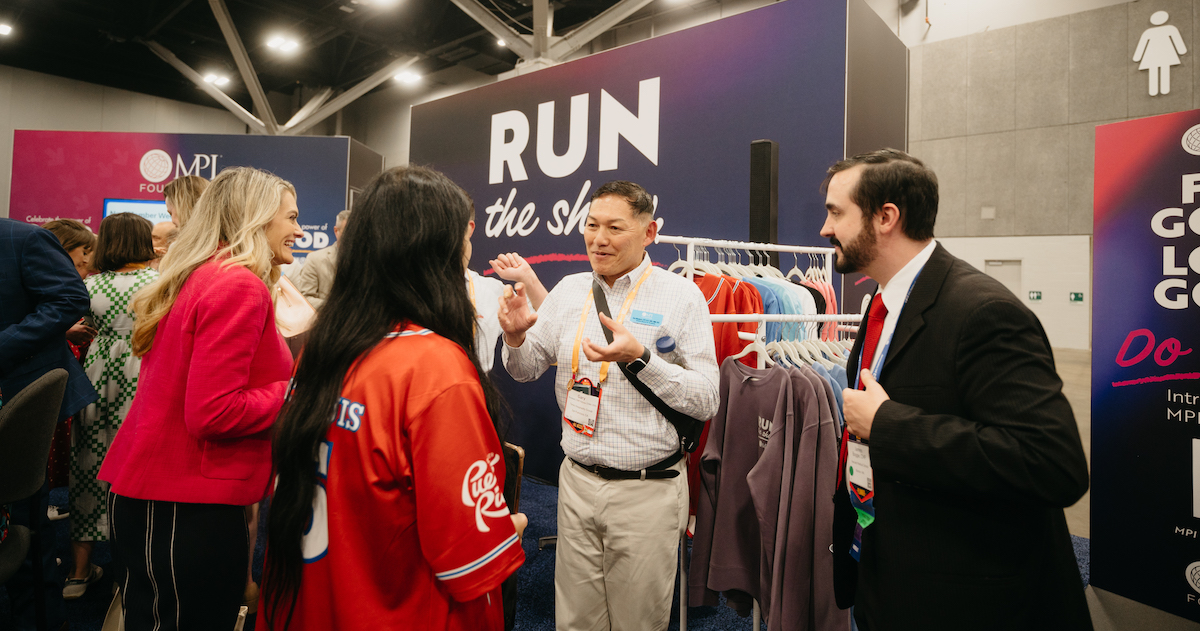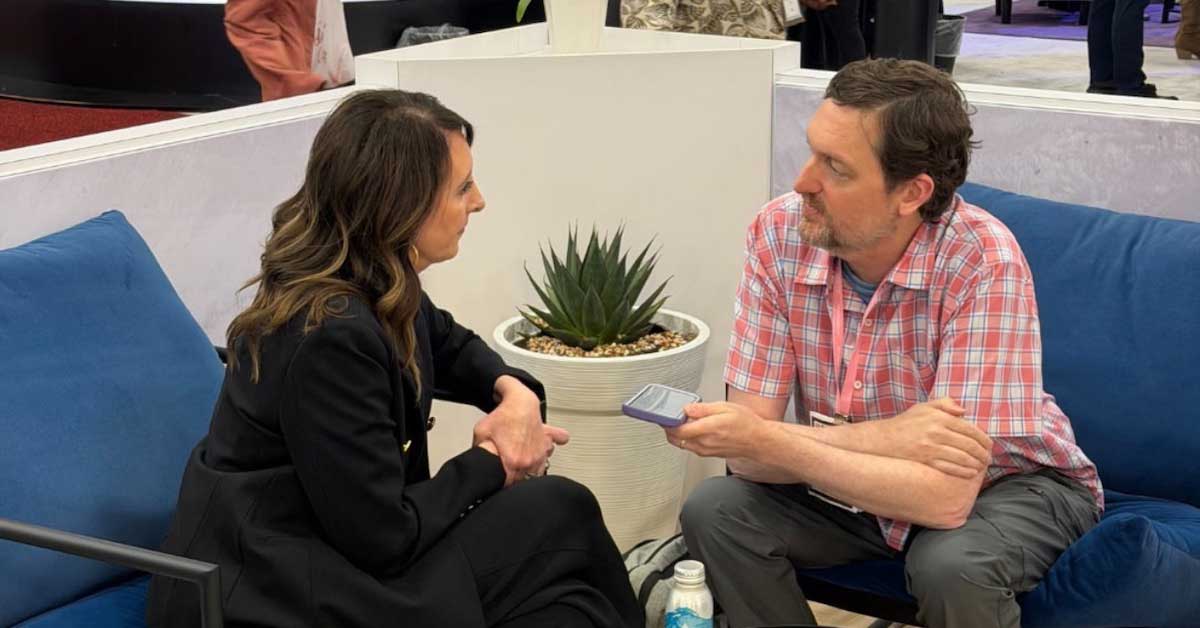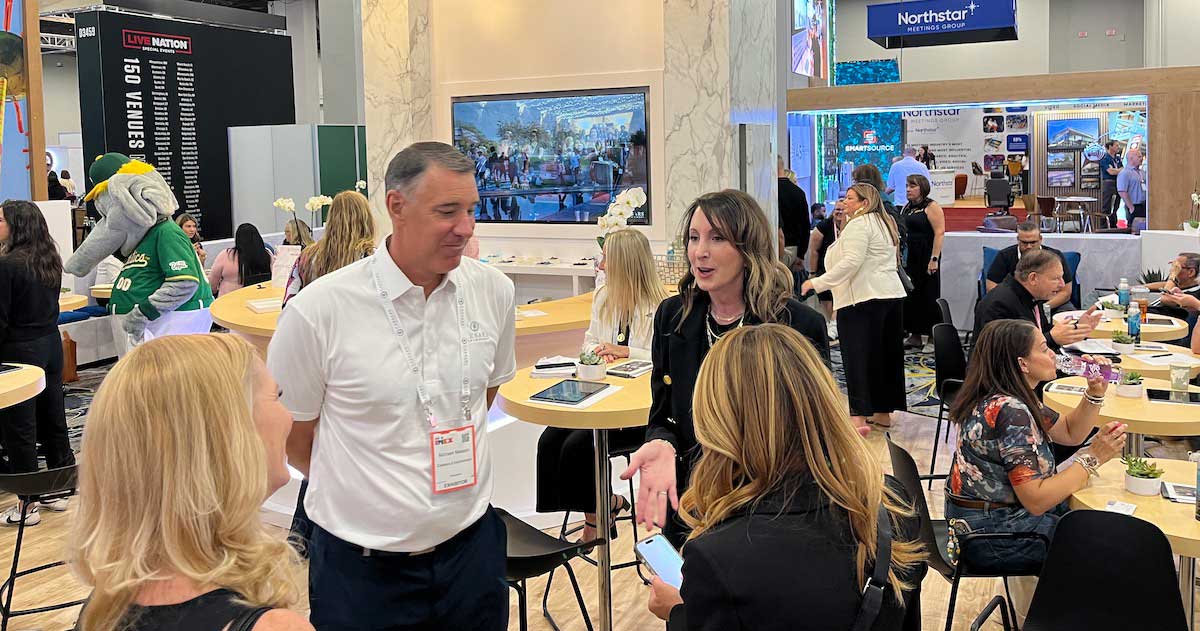Hi. My name is Heather, and I’m an overachiever.
Traditionally this term may have positive connotations. It’s associated with the summa cum laude valedictorian who was a star athlete and started their first business at 14. This is the type of person an employer loves to hire because they come in early, stay late, often work through lunch and get results.
Things said to the overachiever: “I don’t know how you do it all!” “You are so talented!”
“You have it all together.” “Can you do _____ for me?”
Many overachievers decide the varied, busy, exciting and demanding world of the meeting professional is perfect for them.
Are you an overachiever? If so, congratulations for all you’ve accomplished in your life to date—but things now must change.
Here’s why.
Overachievers are killing themselves, and missing out on the deeper relationships, more creative ideas and, yes, better results achieved with a more collaborative strategy.
This may seem dramatic, but stress is a way of life for overachievers and it directly impacts your health in a negative way (insomnia, headaches, upset stomach, high blood pressure and anxiety are just a few examples).
The desire to do everything yourself and make sure it’s done to perfection is nothing if not stressful. It’s important in today’s world more than ever to create habits that calm and focus you.
In addition to the benefit of reducing stress, when you let go of your hunger to overachieve you open your world to better relationships.
Ask for help and appreciate diverse skills and the results will be exponentially better than when you did it all.
Mozelle Goodwin, CMP, pharmaceutical meeting planner at Eisai and past president of the MPI WestField Chapter, shares these three reasons why you shouldn’t do it all.
- Checking email and your phone every 10 minutes while out with friends/family (worse: on a date!) is very annoying to them—and disrespectful.
- When you empower others, they are more willing to take on additional tasks without you even asking, because they will feel they are part of a team.
- Trust is a two-way street. If you don’t trust those around you, they have no reason to trust you either.
If you have asked for help in the past and the task wasn’t done fast enough or to your expectations, the inclination may be to resort back to doing it all yourself. Delegation isn’t easy for the type-A personality! It takes a certain amount of patience to teach the other person how to do the task or to explain the desired result then let them figure out their own ‘how.’ But keep trying.
When you give up control and trust others to help, you will empower others to feel good, connected and inclusive; learn systems and strategies you never would have alone;better serve your clients and create more dynamic, engaging events; and reduce your stress and live a more joyful life!
“The best example of success can always be measured by the accomplishments of your team. Giving others the confidence and authority to make decisions creates leaders and teaches the importance of delegation and positive results!” says Jennifer Veselko, CMP, associate director of sales, central region - in market sales for Caesars Entertainment and president of the MPI Ohio Chapter.
This empowerment is imperative in the world of MPI. According to Nicole Coon, CMP, marketing and events manager for BATC and director of education for the MPI Minnesota Chapter, “Delegating while working with volunteers is crucial to the success of any volunteer-driven organization. I like to look at it more as empowerment, giving the volunteer ownership. It allows individuals the opportunity to utilize their unique skills to support the organization’s strategic goals. You’ll work yourself out of the position, resulting in leadership succession.”
If you want to become a leader in the meeting industry, you need to continually learn and grow. One of the growth areas is to let go of control, seek out answers and use the resources available to help you plan and serve events that stand out.
“I think it’s important to utilize all resources that our industry offers.
Trying to do it all can backfire and cause burnout for the planner,” says Sharon Leary (MPI WestField Chapter), regional director for HelmsBriscoe. “There are outsourcing companies for hotel site selection, production companies, registration tools, planning applications—it’s important to stay involved and up to speed on all these resources and technology. This will make our jobs easier and make the planner look better.”
One example of this is considering an outside AV professional. Not fully understanding or considering AV requirements, equipment or impact on negotiating contracts can seriously jeopardize the budget and results of your event.
“Collaborating with experienced producers from the initial site visits on will help minimize unpleasant surprises,” says Greg Rolenz of Greg Rolenz Productions and VP of communications for the MPI WestField Chapter.
I’m not suggesting you completely reform. Preserve the aspect of overachieving that keeps you productive, motivated and focused on creating meetings that exceed expectations.
In Conclusion
I’m asking you to consider the benefits of enhancing your overachieving mindset. Working smarter instead of harder. Building teams and using resources. Being able to breathe in a way that calms you, your clients and your attendees.
To sum up, collaboration, resource building and mindful self-awareness will enable you to build stronger teams, produce dynamic meetings and create a life you love.
So...
- Generate habits that lift and fill you (like meditation, movement and positive interactions). Take the time to be YOU.
- Decide what you want accomplished then create a plan that includes a system for delegation, collaboration and inspired action.
- Use the many resources available to you from MPI and beyond.
Seek out one thing you can do today to alter that overachiever mindset and take you one step closer to the land of collaboration and more successful meetings and events.







